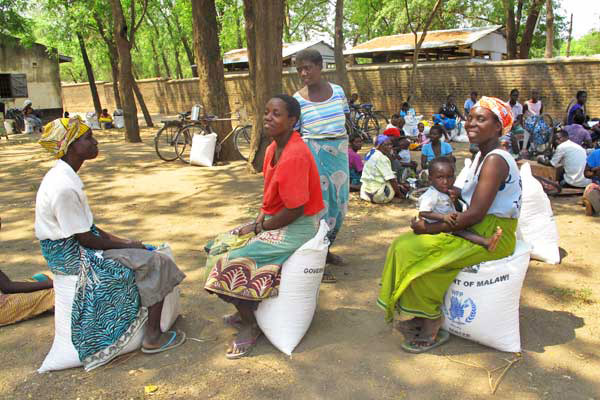
The UN has raised alarm over the surging levels of acute hunger globally, saying that some 124 million people across 51 countries faced hunger crises in 2017, driven largely by climate disasters and conflict.
A UN-backed report:’The Global Report on Food Crises’, also said that 11 million more people were hungry in 2017 than 2016.
The increase was largely attributable to new or intensified conflict and insecurity in Myanmar, North-East Nigeria, the Democratic Republic of Congo, South Sudan and Yemen, it said.
The report was presented by the Food and Agriculture Organisation (FAO), the World Food Programme (WFP) and the European Union.
UN Secretary-General António Guterres, in a message on the report, said: “Reports such as this, give us the vital data and analysis to better understand the challenge.
“It is now up to us to take action to meet the needs of those facing the daily scourge of hunger and to tackle its root causes”.
The report found that food emergencies were increasingly determined by complex causes such as conflict, extreme climatic shocks and high prices of staple food, often acting at the same time.
FAO Director-General José da Silva said: “We must acknowledge and address the link between hunger and conflict, if we are to achieve zero hunger.
“Investing in food security and livelihood in conflict situations saves lives, strengthens resilience and can also contribute to sustaining peace”.
The report pointed out that conflict continued to be the main driver of acute food insecurity in 18 countries – 15 in Africa or the Middle East – accounting for 60 per cent of the global total.
“The fighting must stop now and the world must come together to avert these crises often happening right in front of our eyes,” David Beasley, WFP Executive Director, said in the report.
The report found that food crises were increasingly determined by other complex causes such as extreme climatic shocks and high prices of staple food – often acting at the same time.
For instance, prolonged drought conditions resulted in consecutive poor harvests in countries already facing high levels of food insecurity and malnutrition in eastern and southern Africa, it said.
“The consequences of conflict and climate change are stark: millions of more people severely, even desperately, hungry,” Beasley maintained.
The report also noted that entire communities and more children and women were in need of nutritional support compared to last year, indicating the need for long-lasting solutions to revert the trend.
Moreover, it highlighted the urgent need for simultaneous action to save lives, livelihoods and to address the root causes of food crises.
The report brought together regional and national data and analysis from multiple sources.
It demonstrated that in addition to critically needed humanitarian aid, development action needed to engage much earlier so as to tackle the root causes of extreme vulnerability, thereby building resilience.
“This Global Report on Food Crises shows the magnitude of today’s crises.
“But also shows us that if we bring together political will and today’s technology, we can have a world that’s more peaceful, more stable and where hunger becomes a thing of the past,” Beasley said.











